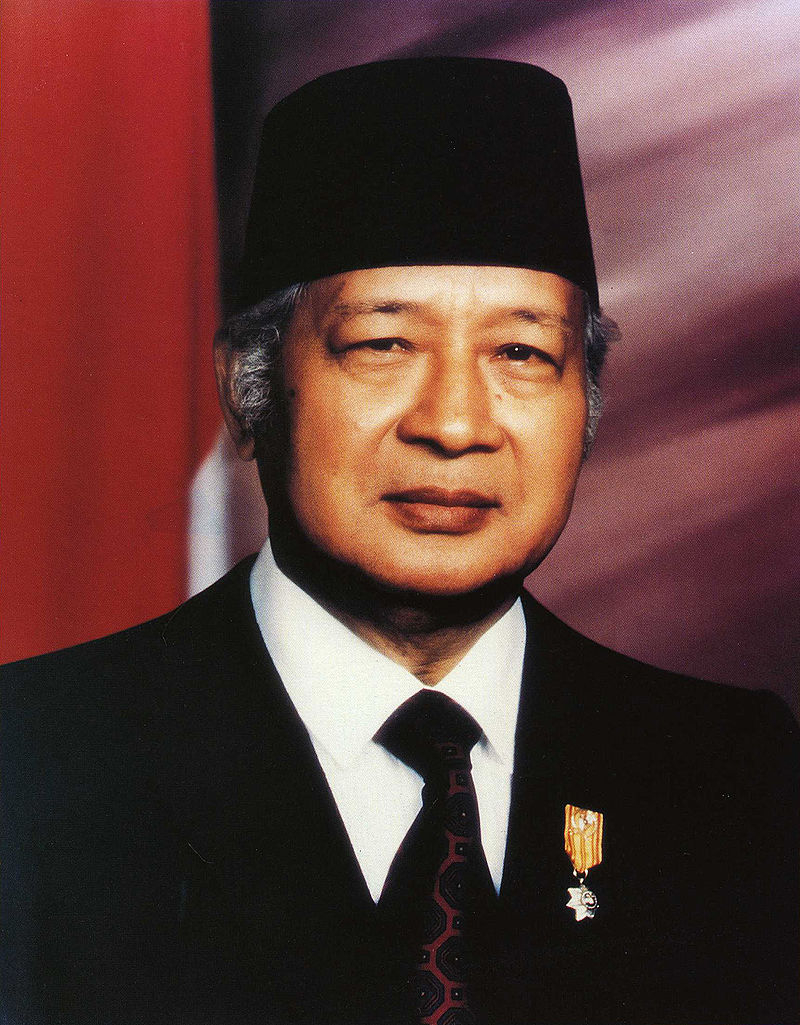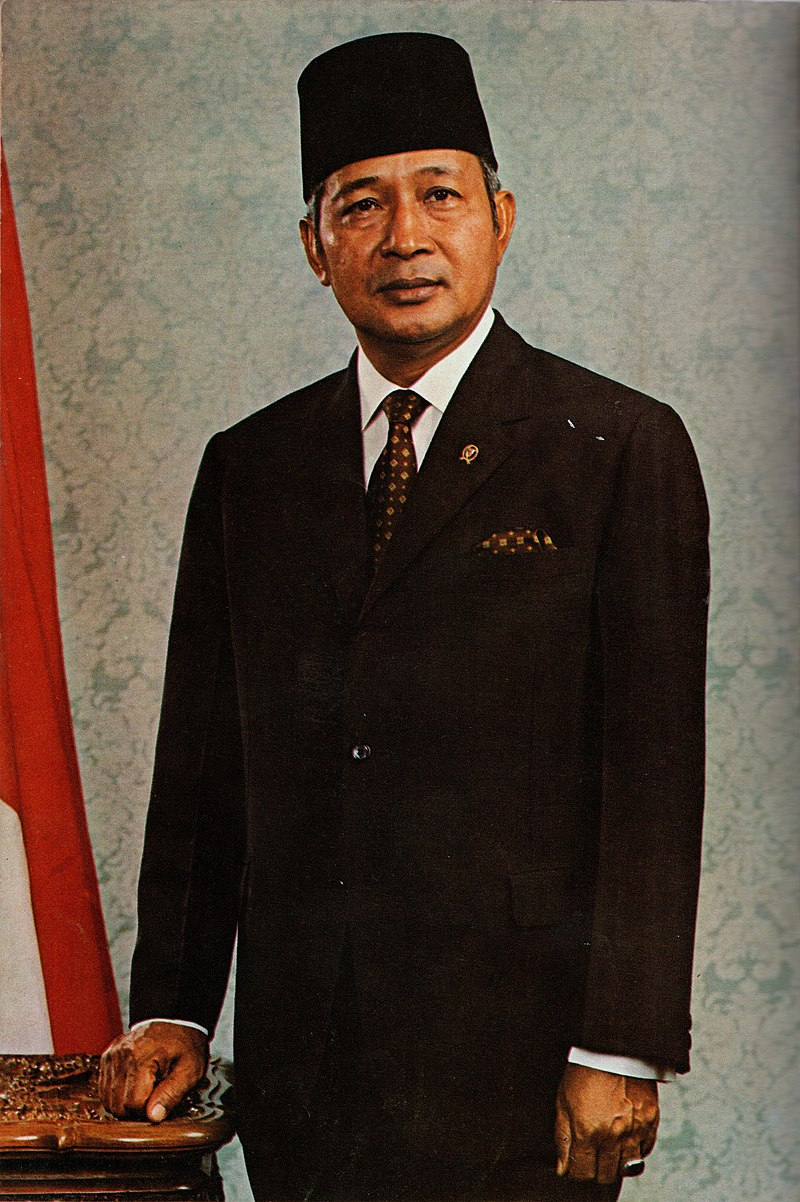Suharto
Suharto (June 8, 1921 - January 27, 2008) was an Indonesian army officer and politician who served as the country's second and longest-serving president. Among the most important historical figures in Indonesia, Suharto, widely regarded as a military dictator by international observers, ruled Indonesia for 31 years, from the fall of Sukarno in 1967 until his own resignation in 1998. His 31-year rule and US$38 billion net worth are still being debated at home and abroad.
Suharto was born during the Dutch colonial era in the small village of Kemusuk, in the Godean area near the city of Yogyakarta. He grew up in a low-income family. His Javanese Muslim parents divorced not long after his birth, and he spent much of his childhood with foster parents. Suharto served in the Japanese-organized Indonesian security forces during the Japanese occupation. He joined the newly formed Indonesian Army during the country's independence struggle. Suharto rose to the rank of Major General there after Indonesia gained full independence.
Suharto-led troops foiled a coup attempt on September 30 and October 1, 1965. According to the army's official history, the Communist Party of Indonesia supported this attempt (PKI). Suharto seized power from Indonesia's founding president, Sukarno, after the army led a nationwide violent anti-communist purge. In 1967, he was appointed acting president and was elected president the following year. He then launched a "de-Sukarnoization" social campaign to lessen the former president's influence. Throughout the 1970s and 1980s, there was widespread support for Suharto's presidency. The New Order's growing authoritarianism and widespread corruption by the 1990s were a source of discontent, and he resigned in May 1998, following the 1997 Asian financial crisis, which caused widespread unrest. Suharto died in January 2008, and a state funeral was held for him.
Suharto established a strong, centralized, and military-dominated government during his "New Order" administration. What began as an oligarchic military dictatorship became a personalistic authoritarian regime centered on Suharto. During the Cold War, he received economic and diplomatic support from the West for his ability to maintain stability over a vast and diverse Indonesia, as well as his avowed anti-communist stance. For the majority of his presidency, Indonesia saw significant industrialization, economic growth, and higher levels of educational attainment. The Indonesian government is considering awarding Suharto the title of National Hero, which has sparked heated debate in the country. Transparency International claims that Suharto was one of the most corrupt leaders in modern history, embezzling an estimated $15-35 billion during his reign.
Birthdate: June 8, 1921
Died: January 27, 2008












